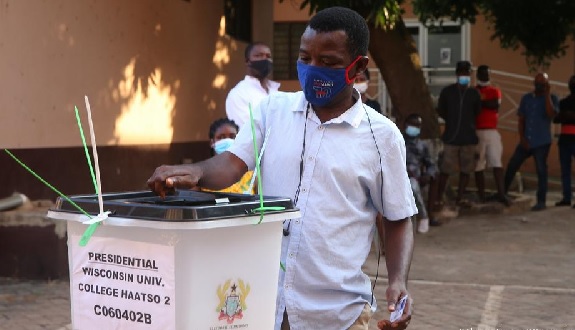The Ghanaian Perspective: Opinion Articles on Current Issues

2024 Elections: Reflections on polling in Ghanaian electoral contests
My colleagues and I (iRIS Research Group) conducted a pre-election survey in 2020. We appeared on PM Express (Joy News) to share our findings. The first fifteen minutes went well. Later, we were joined by a representative from the National Democratic Congress (NDC) and the New Patriotic Party (NPP).
Advertisement
The experience on the show, as well as its aftermath, was instructive. The responses to our work fell into two categories – a) the professional focused on the methods deployed, the conceptual framework used to categorise constituencies, the operationalisation of variables and the overall findings.
That, in my opinion, was fair; and b) the personal focused on the questioning of motives, the accusation of bias, and the suspicion of an attempt to sway the election outcome. That, in my opinion, was unfair.
The trust issues
After the election, I conducted a survey to assess Ghanaian attitudes towards election polls. I surveyed a sample from the following groups – a) media persons, given their critical role in the dissemination of the results of pre-election surveys/polls; b) politically active and engaged persons (party executives, party officials, candidates for office, members of political campaign teams) because they are end-users of polls; and c) a cross-section of Ghanaian voters because they are both respondents to and consumers of polls.
One of the survey questions dealt with the extent to which polls are trusted across five different dimensions. I was particularly interested in those who expressed “a lot” of trust in the dimensions identified.
Table 1: Percentage of respondents who say they trust “a lot.”
As you can see from the table, there is a deep mistrust of polls on all five dimensions across all three key groups surveyed. Even more concerning is the low level of trust among the cross-section of Ghanaian voters who are the respondents to these polls.
Interestingly, the survey results showed that there is a consensus among respondents –media persons (78%); politically engaged persons (74%); and a cross-section of voters (56%)– that polls are of value in elections.
Polls
Another election year is fast approaching, and we can expect several polls. In a partisan political environment, they will be subjected to a lot of commentary, some in support and others in opposition. The issue of mistrust will not go away overnight, but I have a few suggestions that can help.
First, in putting the results of polls in the public domain, it is always important to fully disclose the methodology used.
The technical nature of methodology is such that in settings of non-technical persons, and sometimes because of mischief in our political spaces, it can appear to be an exercise in futility.
Whatever the case is, methodological clarity is important. Also, pollsters must never shy away from sharing their methodology, as well as acknowledging any limitations. In an environment of mistrust, the more information that is shared, the better the insulation against some of the potential criticisms.
Second, transparency about the funding of polls can help address the mistrust issue. In questioning the motives of those who conduct polls, one thing that often comes up is who is funding the work.

Whatever motivates this question, in an atmosphere of mistrust, transparency does help in responding to such questions. For example, CDD-Ghana publicly revealed that its pre-election survey work was funded by the United States Agency for International Development.
The National Commission for Civic Education acknowledged the support provided by the European Union for pre-election surveys. Again, these revelations may not put to rest all the questions, but they help erase any dark clouds that potentially may surround those who have committed to engage in election polling.
Third, the media plays an extremely important role in the dissemination of the results of pre-election surveys/polls. They are essentially the conveyor belt passing the results from those who conduct them to the public domain. How that is done helps polls become instruments of information during an election.
Report the results as the current state of what voters are thinking and not as a predictor of what voters will do.
I believe polls will continue to be one of the features of our elections. For those interested in conducting polls, the challenge is to get better and do better. Most especially, taking steps to address mistrust will be crucial as we go into 20204.



